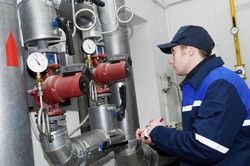Waste heat converted to electricity
Thermoelectric (TE) devices can be used to harvest waste heat to supply power, thereby helping to achieve a secure and sustainable supply of energy and mitigate global climate change. The EU- funded project H2ESOT(opens in new window) (Waste heat to electrical energy via sustainable organic thermoelectric devices) was therefore established to develop the necessary advanced and cost-effective organic TE materials to make this dream a reality. Project partners developed functionalised tetracene-based materials, particularly tetrathiotetracene (TTT). The molecule TTT forms low dimensional organic crystals that potentially have exceptional electronic properties. Other researchers focused on issues of purification and deposition. The consortium produced single crystals of TTT-based materials, which have higher conductivities than thin films, to enable unprecedented thermoelectric testing of small molecules for rapid screening. Theoretical predictions from computational work showed that electrical conductivities rise by more than 10-fold as defects in the crystal decrease. This suggested that even a material with poor conducting efficiency could become exceptional if the properties of the crystals can be carefully controlled. Several proof of concept TE generators were built using the crystals, which was the first time this had been achieved using TTT. H2ESOT has taken the first steps in demonstrating the ability of single crystalline materials to directly turn waste heat energy into electrical power. This could be a defining point in the history of energy and global climate change. Success will change the energy playing field, creating a new industrial sector based on local power generation from waste heat with inestimable environmental and financial benefits.







